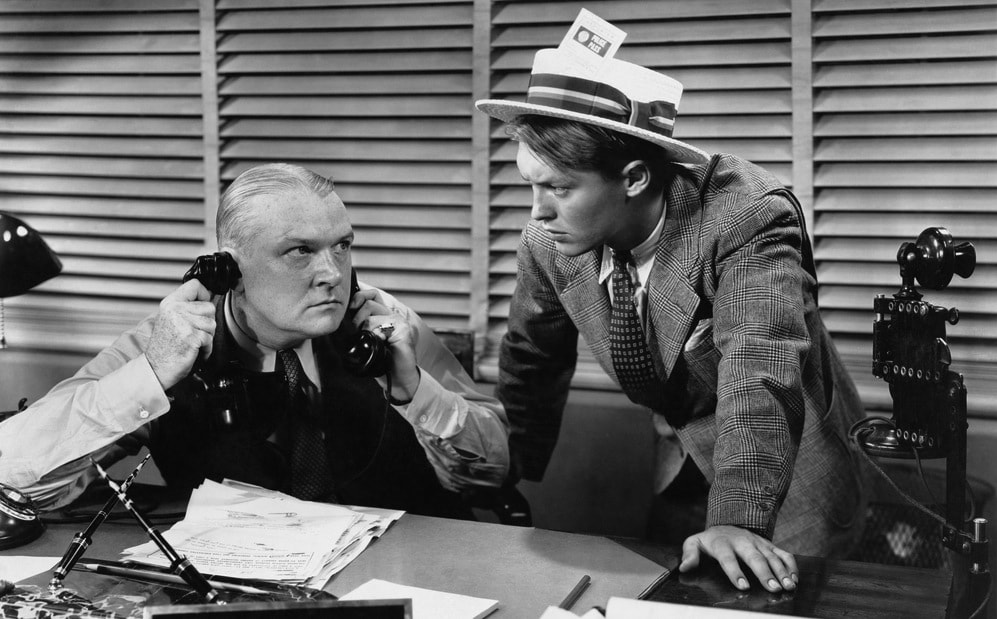 Where would journalists be without PROs? BBC economics editor Robert Peston, may have labelled them “the enemy” in his recent speech, but there is no question that in today’s media environment, journalists are dependent on PR contacts for a huge amount of content. And this dependency is growing.
Where would journalists be without PROs? BBC economics editor Robert Peston, may have labelled them “the enemy” in his recent speech, but there is no question that in today’s media environment, journalists are dependent on PR contacts for a huge amount of content. And this dependency is growing.
Taking a historical perspective, Andrew Scott, media officer at the Museum of London, says: “Each day I cycle to work in the press office at the Museum of London, I pass a blue plaque near Ludgate Hill. It marks the location where Britain’s first daily newspaper, the Daily Courant, was founded in 1702. I wonder what the 18th century journalists would make of the working relationship between PR officers and 21st century hacks. The modern journalist, who, as Francis Ingham, the PRCA director general, wrote recently, relies upon PROs for facts, opinions and copy.”
In their turn PROs rely upon journalists to disseminate information accurately. So it’s important that they appreciate what journalists need, what their pressures are and how they work in order to become indispensable.
The first secret to getting along with journalists is to appreciate them. Sam Howard, founder of freelance collective The Comms Crowd, says: “Perhaps because as I kid, I wanted to be a journalist, I have always revered my colleagues across the great divide who never sold out. Rightly or wrongly their opinion has often been more important to me than my clients. Let’s face it when you work in a niche sector clients do come and go but your journalists are forever with you.”
Howard believes that the primary role of PROs is to deliver great stories: “I try exceptionally hard not to send out white noise, I never ask if anyone has received a press release ever and I mither over press lists to the point of obsession to make sure no one gets ‘spammed’ with irrelevant stories.”
Top tips for building strong journalist/PRO relationships
From the Museum of London’s Andrew Scott:
1. Create great content. The 24-hour rolling news might require constant sustenance, but only ever send a journalist content which has news value to them, be it a press release, a quote, images or video. Do your research beforehand to know what they write about and the stories they are after.
2. Know your brand or your story inside out. Be prepared to answer rigorous questions accurately. Evading or delaying the answer will do nothing to curry favour with journalists. If you don’t know the answer, then be frank and say so, but respond in a timely manner when you do.
3. Grow your press contacts and meet with journalists. As professional communicators we need to lead by example. A face-to-face conversation allows you to expand beyond the confines of a brief phone call, find common ground, and demonstrate your personality beyond the “gatekeeper”.
4. Be personal. Don’t blind carbon copy an email and send it to 500 contacts. That might work if you are announcing the birth of a royal baby, but not if you have a new flavour of yoghurt.
5. Stay professional. Journalists will have opinions about the organisations they come into contact with whether good or bad, right or wrong. PR officers are there to be an ally, furnishing them with the tools and information they need – be they the news editor at a national paper or the editorial assistant at a niche trade mag.
Soundbites
How to be indispensable to journalists
Sean Williams, deputy managing director at PR agency Brazil: “There are lots of good-practice guidelines PROs can follow, from understanding the journo’s patch to knowing when a good time to call is. But to truly become a trusted ally, why not being a writer or journo yourself? It’s not easy and certain skills are required, but it gives you a complete understanding of the pressures they are under. It doesn’t have to be for the BBC, it could be for a blog network or website looking for news as SEO strategy. I have a number of colleagues writing for various publications including the Metro, Daily Express, Daily Star and Daily Mirror, to the Guardian and cycling blogs.”
David Alexander, managing director at agency Calacus Public Relations: “I was a journalist for a decade and I found a lot of PROs didn’t know quite how to take advantage of journalists by feeding us information about their clients that could have been beneficial. When I moved into PR, I had strong contacts, but none of them would ever do me a favour or place a story without the merit to justify its publication. They know who I work for and they know they will always get a straight answer. They know that if I contact them I won’t waste their time.”
Richard Fogg, managing director of PR agency CCGroup: “We’ve asked 10 journalists what PROs can do to be indispensable to them. So far, four have responded and two of them have asked why on earth PR people would want to be indispensable to them?!”
PRmoment Leaders
PRmoment Leaders is our new subscription-based learning programme and community, built by PRmoment specifically for the next generation of PR and communications leaders to learn, network, and lead.
PRmoment LeadersIf you enjoyed this article, sign up for free to our twice weekly editorial alert.
We have six email alerts in total - covering ESG, internal comms, PR jobs and events. Enter your email address below to find out more:






